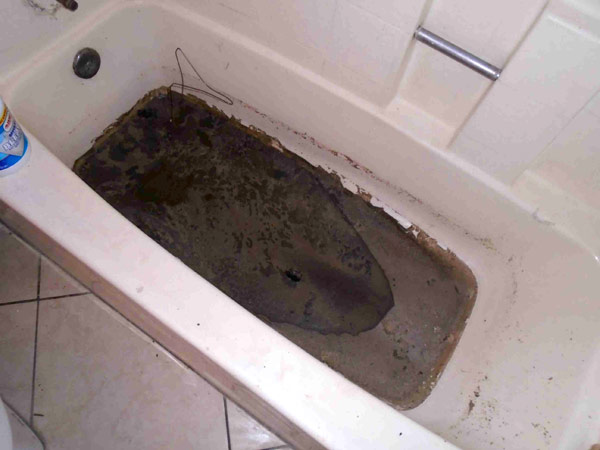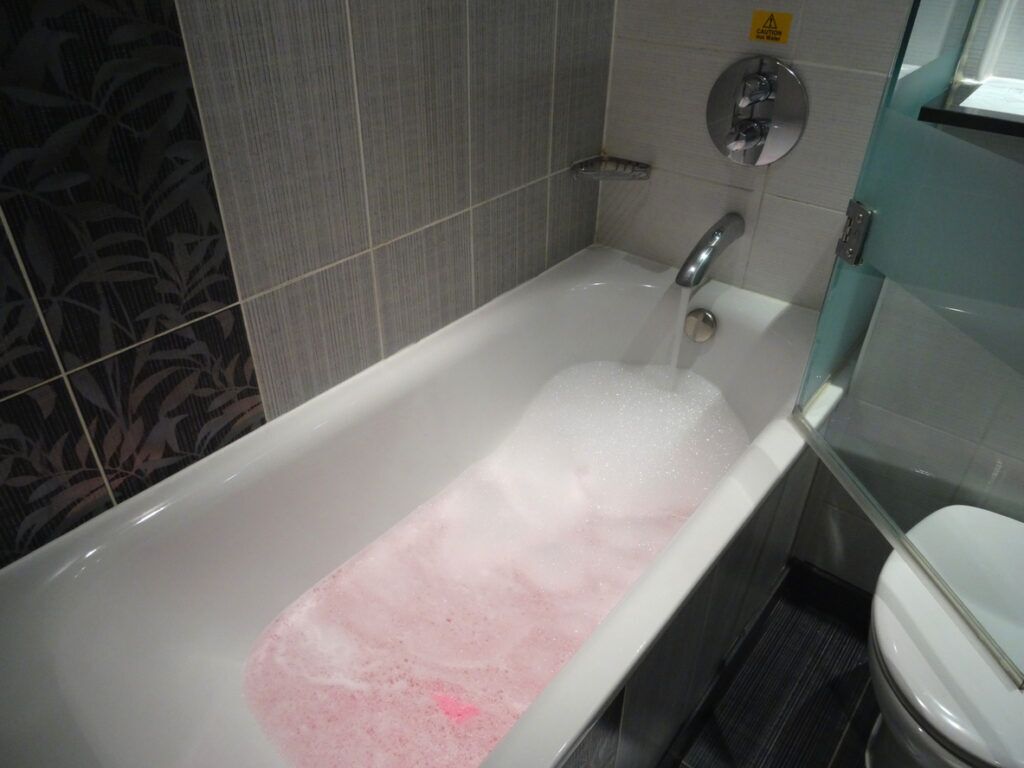Your Definitive Explanation: Discharge Coming Up Through the Bathtub
Your Definitive Explanation: Discharge Coming Up Through the Bathtub
Blog Article
Are you on the lookout for facts involving What to Do if Sewage Starts Coming Up Through Your Bathtub?

Sewer backup in the tub can be an upsetting and unhygienic trouble for any type of house owner. Not just is it troublesome, however it likewise positions significant health and wellness dangers and shows underlying problems with the plumbing system. Recognizing why sewage is showing up through the tub is crucial for taking suitable action to address the trouble efficiently.
Intro to the Issue
Typical Reasons for Sewage Backup
Blockages in the Sewage System Line
One of one of the most common reasons for sewage backup is a blockage in the sewer line. This can take place as a result of the buildup of particles, grease, or foreign objects in the pipes, stopping appropriate flow and causing sewer to support into your tub.
Tree Root Breach
Tree origins seeking dampness and nutrients can penetrate sewer lines via small cracks or joints. Over time, these origins can grow and increase, creating significant damages to the pipelines and leading to sewage back-up concerns.
Recognizing the Problem
When sewage starts backing up right into the bath tub, it's a clear indication of a problem with the water drainage system. The wastewater that must be flowing away from your home is rather locating its way back into your space, which can result in considerable damages and health hazards.
Possible Causes
A number of factors can contribute to sewer back-up in the bath tub. From clogs in the sewage system line to concerns with the plumbing facilities, identifying the source is essential for locating a solution.
Aging Facilities
Older homes might have outdated plumbing systems that are more at risk to deterioration, fractures, and wear and tear. As pipes age, they end up being a lot more susceptible to leaks and obstructions, increasing the possibility of sewer back-up events.
Heavy Rainfall or Flooding
During periods of heavy rainfall or flooding, the sewer system may become overloaded with excess water, creating back-ups and overflows. This can lead to sewer backing up into tubs and various other fixtures inside the home.
Signs of Sewage Backup
Foul Odors
Undesirable odors originating from drains or fixtures, especially in the washroom, might suggest sewage back-up problems. These smells are commonly strong and relentless, signaling a trouble that needs instant focus.
Slow Draining Fixtures
Bathtubs, sinks, and toilets that drain pipes gradually or not in any way could be experiencing sewage back-up. If numerous components are affected simultaneously, it's most likely that the problem stems from an usual factor, such as the major sewage system line.
Gurgling Sounds
Odd gurgling or gurgling noises originating from drains pipes when water is running in other places in your home are a measure of air trapped in the plumbing system. This air build-up can result from sewer backup and must be investigated promptly.
Health Dangers Related To Sewage Backup
Contamination of Water System
Sewer backup can pollute the water supply in your house, posing a major health danger to you and your family members. Exposure to polluted water can lead to intestinal issues, skin infections, and various other illnesses.
Mold Development
Wetness from sewer backup can produce perfect conditions for mold and mildew growth in your home. Mold and mildew spores can intensify respiratory system problems and cause allergic reactions in delicate people, making punctual cleanup vital.
Spread of Condition
Sewage includes harmful bacteria, viruses, and bloodsuckers that can trigger a variety of conditions, including hepatitis, cholera, and gastroenteritis. Coming into contact with sewage or infected surface areas puts you at risk of infection.
Cleaning Up After Sewer Back-up
Disinfection Procedures
Extensively sanitize and disinfect influenced locations after sewer back-up to eliminate damaging germs and prevent mold development. Usage ideal cleaning items and safety gear to guarantee secure and reliable cleanup.
Restoration of Impacted Areas
Fix any type of damages to floor covering, walls, or fixtures caused by sewer back-up. Depending upon the degree of the damages, you might require to change carpeting, drywall, or other materials to recover your home to its pre-loss condition.
Immediate Actions to Take
Turning Off Water
In case of sewage backup, it's vital to switch off the water to stop additional contamination and damage. Find the major water shutoff valve in your home and shut it off up until the issue can be dealt with.
Getting In Touch With a Professional Plumber
Handling sewer backup is not a DIY work. Contact a qualified plumber with experience in dealing with sewage-related issues to examine the scenario and execute needed repair services or clean-ups.
Staying Clear Of Contact with Infected Water
Until the sewage back-up is solved, stay clear of contact with contaminated water to avoid the spread of microorganisms and pathogens. Wear protective gear if you must be in the affected area and clean your hands completely later.
Safety nets
Normal Upkeep of Sewage System Lines
Arrange routine examinations and upkeep of your drain lines to determine and resolve possible concerns before they rise right into major issues. This can include clearing out particles, checking for tree origin breach, and fixing any damaged pipelines.
Installing Bayou Shutoffs
Think about setting up bayou valves in your plumbing system to stop sewer from receding right into your home during durations of heavy rainfall or flooding. These valves instantly close when water starts backing up, protecting your building from contamination.
Appropriate Disposal of House Waste
Stay clear of flushing anything apart from toilet tissue and human waste down the toilet to avoid blockages and clogs in the sewer line. Dispose of oil, oil, and various other family chemicals appropriately to lessen the threat of plumbing issues.
Why is there sewage coming up from my bathtub?
These gas fumes, like hydrogen sulfide – the gas that leaves a rotten egg smell in its wake and is highly flammable and toxic – can be hazardous to your health. Sewage poses major health risks as it contains harmful bacteria and microorganisms that can be dangerous if exposed to them.
Sewage cleanup should be considered an emergency.
So, why is there sewage coming up from your bathroom? There are several common causes of a sewage backup.
The most common reason for sewage coming up through your bathroom is a clogged sewer line. All plumbing in your bathroom connects to a single drain pipe that leads to the sewer line under your house. This drain line carries all wastewater and sewage away from your home to the city’s sewer system.
When the sewer line becomes clogged or blocked, wastewater has nowhere to go but back toward your house. This results in sewage coming up through your drains, often starting with your tub or shower.
Another culprit may be the sewage ejector pump, which is used when a bathroom, laundry room or any other type of plumbing fixture is located below the level of the main sewer or septic line flowing from the house. Most commonly, ejector pumps are used in homes with basement bathrooms or laundry rooms.
When you experience sewage coming up through your bathtub, it’s always best to contact a professional. Attempts to fix a clogged sewer line without experience often lead to more plumbing damage.
Make sure that no one enters the affected area, and open as many windows as possible. Pre-treat the flooded area with small splashes of chlorine bleach. Wear protection gear like rubber gloves, a mask, and water-resistant coveralls.
https://www.shawlocal.com/the-herald-news/sponsored/2022/08/17/omega-plumbing-10199038/

As an avid reader about Why sewage is coming up through your bathtub, I assumed sharing that portion was beneficial. Kindly take the time to share this page if you appreciated it. I treasure reading our article about Why sewage is coming up through your bathtub.
Click Here
Report this page